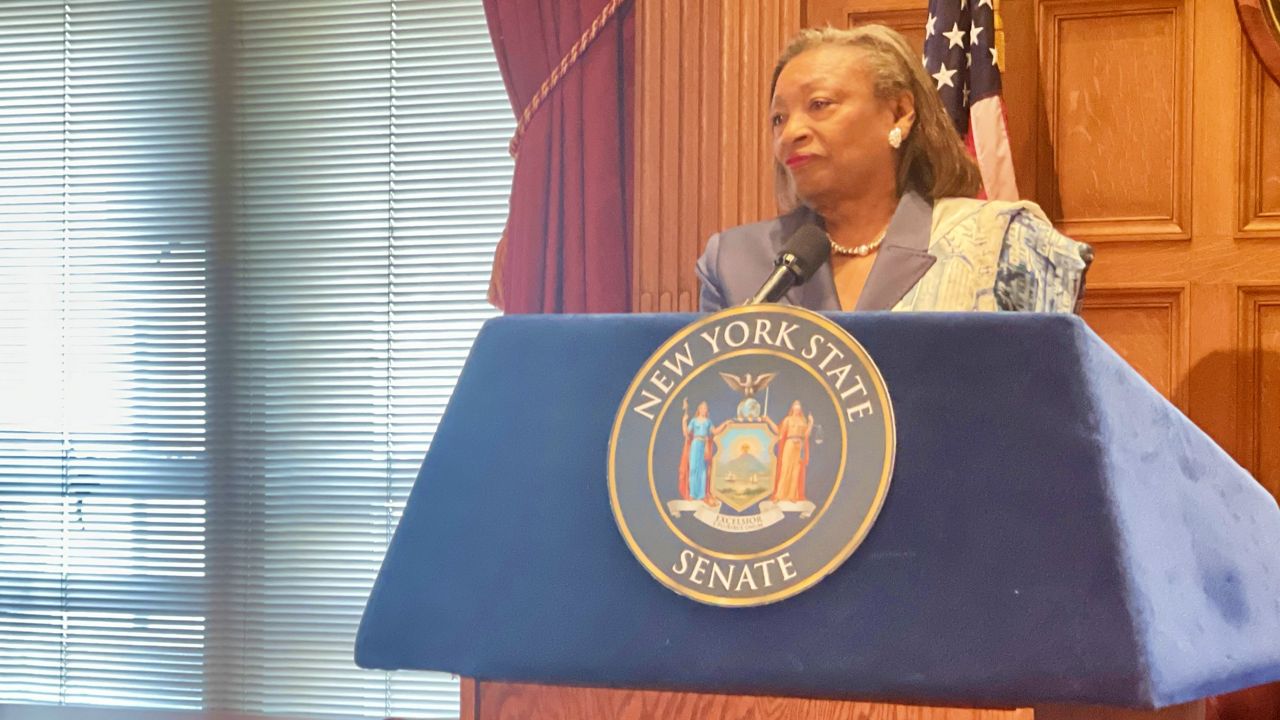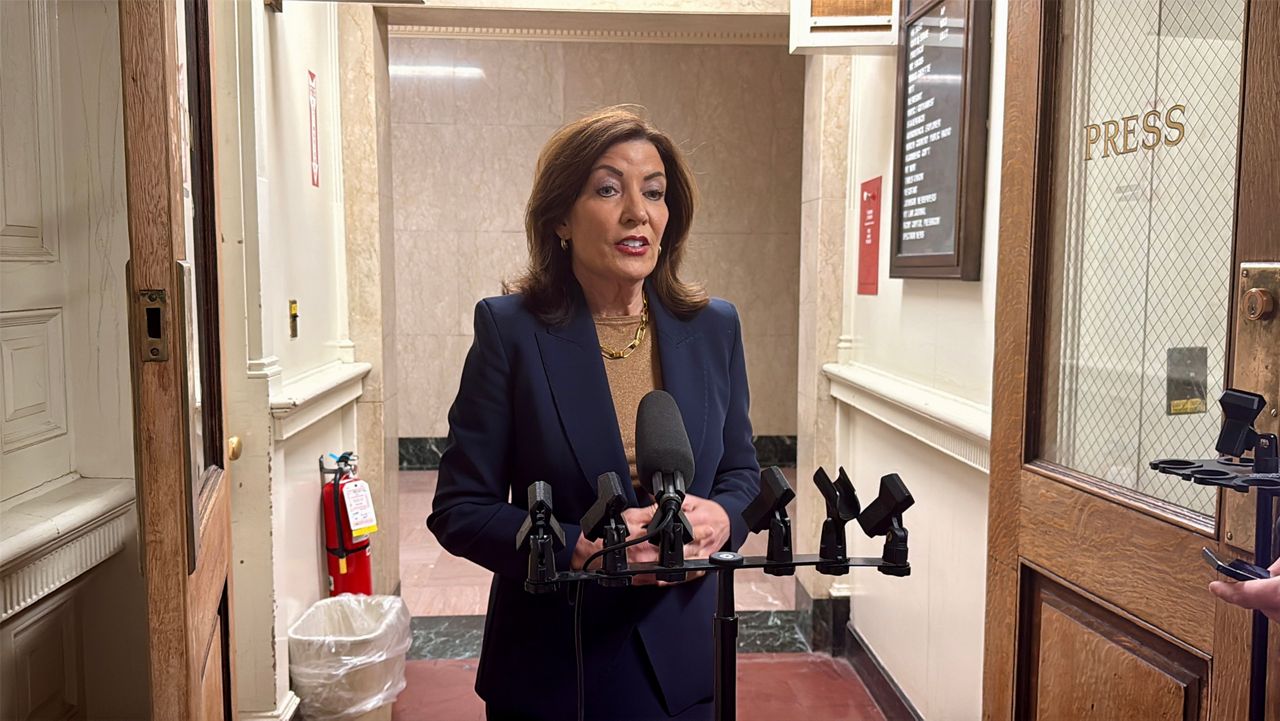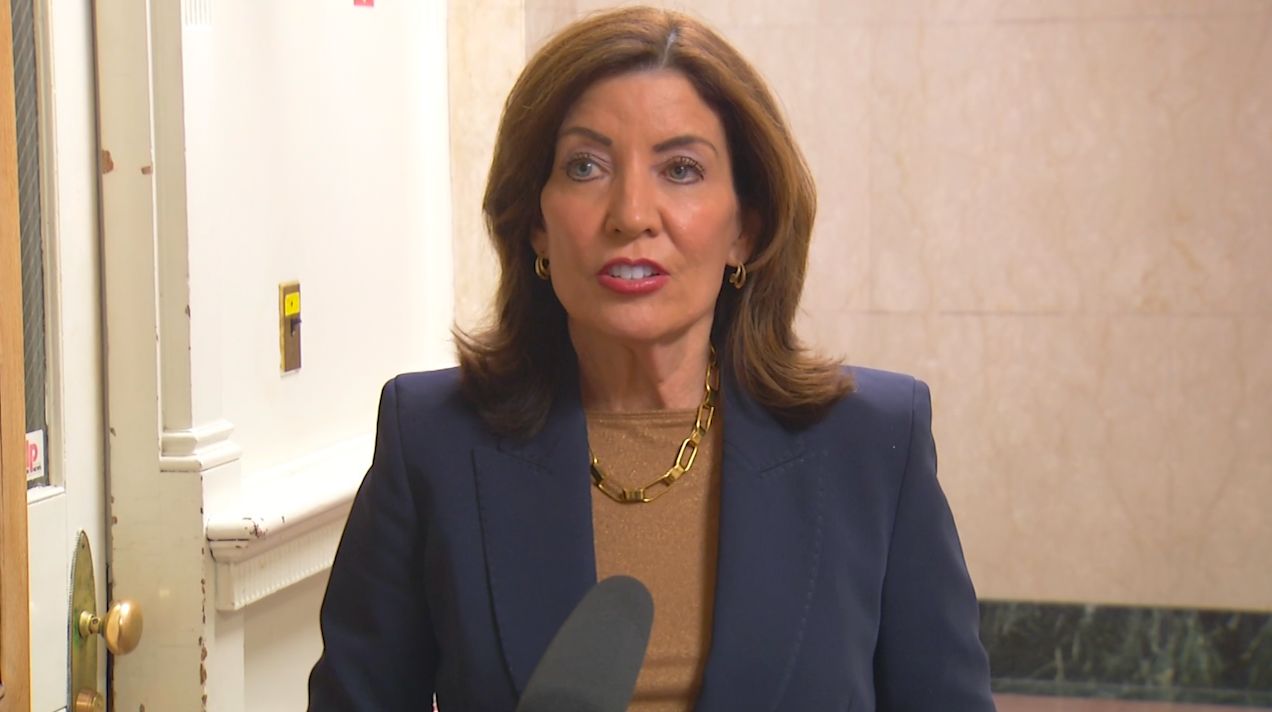The New York Legislature will consider changing the state Constitution to eliminate the commission that selects candidates to fill vacancies on the state's highest court after Gov. Kathy Hochul discussed the idea with legislative leaders, Senate Majority Leader Andrea Stewart-Cousins said Tuesday.
The Commission on Judicial Nomination — comprised of people appointed by the Legislature, governor and the judiciary — selects a list of seven candidates for the governor to choose from when filling a Court of Appeals vacancy and helps maintain transparency in the nomination process. Members of the Senate Judiciary Committee hold a hearing to evaluate the nominee before senators vote to accept or reject them, as required in the state Constitution.
"Because it will take a constitutional amendment, it will take until about 2025 to actually change it," the Senate leader told reporters in the Capitol on Tuesday. "We'll do what we can in order to create the process we like."
Stewart-Cousins spoke about plans to alter the state's judicial nomination process to the Court of Appeals one day after Gov. Hochul picked Judge Rowan Wilson to serve as the state's next chief justice. He became the associate judge of the Court of Appeals in 2017 and would become New York's first Black chief judge if senators vote to confirm his nomination.
"We're really looking at the efficacy, or lack thereof, of this commission," Stewart-Cousins said. "I think the majority of us really would like the executive to be able to name whomever it is, and then we go through our process. And that is [it] the ideal for us having a group of people submit a limited number of people every time you are looking to fill a vacancy is no longer something we would like."
Assembly Speaker Carl Heastie is also on board with changing the judicial nomination process, Heastie's spokesman Michael Whyland said.
"The speaker does think the selection process should be re-examined," he said, adding the Assembly has not seen a bill.
Changing the state Constitution takes several years, and requires the Legislature to pass a measure in two consecutive sessions before it goes before voters as a ballot proposition in the next general November election.
It's a path Gov. Hochul asked lawmakers to take, the Senate leader said.
"I'm not terribly concerned about it because, again, I think for us, we are not excited about the way the process is now," Stewart-Cousins added.
Legislation to change the Constitution and judicial nominating process has not been proposed. Stewart-Cousins expects the bill to be released soon to be passed before the June 8 end of legislative session.
It's not the first time in recent months lawmakers have changed state law to benefit the governor, including altering state election law to replace her former lieutenant governor on the ballot and legislation passed earlier this month to remove the requirement for the commission to recommend another slate of candidates if the governor selects a new chief judge who already sits on the Court of Appeals, hastening the process.
On the heels of recent law change, Hochul on Monday also nominated attorney Caitlin Halligan to fill Wilson's spot as an associate judge on the state Court of Appeals. She was one of the seven people on the Commission on Judicial Nomination's recommended list.
Potential litigation against that law change could be fought up to the Court of Appeals.
Stewart-Cousins said she expects the Senate's vote on the governor's pick — typically a routine process, especially with one-party control of the Legislature — to go more smoothly for Judge Wilson than the chamber's rejection of Justice Hector LaSalle earlier this year.
Members of the Senate Judiciary Committee, who will vote to advance his nomination to the full Senate for a vote, were quick to release statements supporting Wilson as the next chief judge.
Stewart-Cousins and senators were surprised when Hochul nominated Judge LaSalle in December, which led to a tense hearing amid weeks of pushback and litigation from Senate Republicans before they voted to reject him.
The Senate has not set a date to for the hearing to question Wilson and evaluate his nomination.









